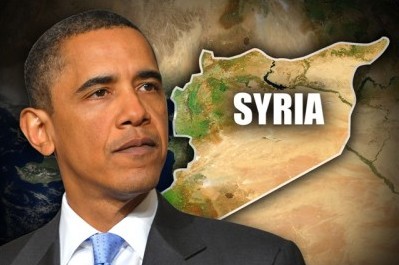On Saturday, President Obama announced a surprising — and baffling — decision: he said, “I have decided we would take military action”, but then said that decision would be put to the US Congress for a vote.
Perhaps this is not baffling in a domestic context. The US is still dealing with the consequences, a decade later, of failed interventions in Afghanistan and Iraq. Specifically, Obama has to overcome the precedent of a Bush Administration that went to war on a lie to remove Saddam Hussein. A cautious President in his decision-making, he sees an American public of which the majority are opposed to airstrikes, let alone intervention with gorund forces.
However, as a strategic decision, “baffling” is not strong enough to describe the President’s manoeuvre. It is already 10 days since the Assad regime killed at least 1,360 people with chemical weapons, the largest mass killing in this manner since Saddam Hussein deployed the toxins on Kurds in 1988.
Conscious — and even scared — that it faces retaliation, the Assad regime has been moving forces and resources away from Damascus. While it has been checked in its drive to take over the suburbs, it is conserving its power while still carrying out attacks, including shelling today.
Obama explicitly acknowledged the urgency when he said the US would not wait for a “paralyzed” United Nations Security Council — or even the findings of UN inspectors — before acting. But then he effectively stood down his military with the declaration that Congress would have to debate and vote.
The President said he had the assurances of Congressional leaders that this would occur “as soon as Congress returned to session”.
What he did not say was that the Congress does not return from Summer Break until September 9.
So, allowing for a few days for discussion, deliberation, and decision in both the Senate and the House of Representatives, Obama has put off any response — even if he gets legislative support — for another two weeks.
Perhaps if Obama was asking for authorization for a US campaign supporting the opposition in its quest to remove the Assad regime, this would make sense. This would be American intervention in a war, putting it in the long-disputed grey area set down by the War Powers Act of 1973.
But he explicitly said he would not do this. Instead, he is only asking for endorsement of a “limited” set of airstrikes.
That may have the symbolic effect of the US finally taking some public action — three months after the Obama Administration said it would do so with arms supplies to the insurgents, a promise which it never began to fulfil.
However, in the context of Obama’s own words, “This menace must be confronted….I am ready to act in the face of this outrage,” it means almost nothing.
Obama pronounced near the end of his speech:
We must acknowledge costs of doing nothing….What message will we send if a dictator can gas hundreds of children in plain sight and pay no price? What message does it say to others who will flout international rules?
Inadvertently, he answered his own question. The message he sent is that, in the face of mass killing, a US President will be caught in indecision until he finally acts — to put off that decision with his appeal to the procedures of an American “Constitutional democracy”.

